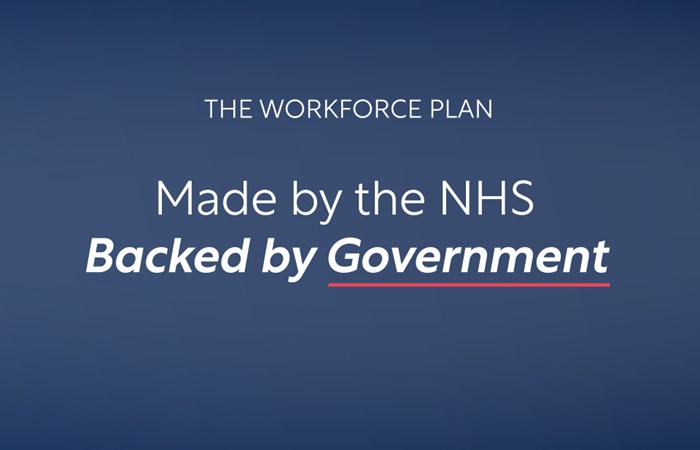Prime Ministers Office 10 Downing Street

Ive made no secret of the fact that it is one of my top priorities to make sure people across the UK get access to the care they need more quickly.
Thats why the introduction of this plan is so important a plan for investment and a plan for reform.
Developed by the NHS and backed by the Government, the 15-year long term workforce plan will meet the workforce requirements the NHS has for the future.
What weve done so far
The Government has already invested significantly in education and training NHS spending this year is at a record high, around 16% higher in real terms than in 2019/20.
There are more staff working in the NHS than at any point in its history, including a record number of doctors and nurses. Overall, the NHS in England employs around 1.6 million people, one of the worlds largest employers and the largest in the UK.
However, Covid has imposed significant burdens on the NHS, and NHS staff are working hard to recover services and cut waiting lists one of my top priorities.
The case for change
Since the NHS was founded, it has struggled with staffing shortages and a lack of long-term workforce planning - this is a challenged faced by healthcare systems across the world.
Compared to other healthcare systems globally, the NHS is particularly reliant on international recruitment; around one quarter of our workforce are recruited from overseas.
The NHS also has significant levels of temporary staffing to cover a vacancy rate of 8% (March 2023).
Temporary staff, such as doctors and nurses, supplied by agencies cost on average 20% more than those from than those from the NHSs own staff banks despite doing the exact same job.
So today, in the NHSs 75th anniversary year, this Government and the NHS are setting out a long-term plan to protect our National Health Service.
Did you know?
- It takes up to 15 years to train a consultant and 3 years to train a nurse
- Pressures on the workforce will grow if we dont solve the workforce shortage. Over the next 15 years, the number of people aged over 85 will grow by 55%. The NHS estimate that in this time, without action, the workforce gap could grow to up to 360,000
- Patient needs are also changing, becoming ever more complex as people are living longer, and living with multiple long-term conditions, like diabetes, asthma and mental health issues
- The way we train doctors has become increasingly specialised
This is our longer-term, strategic approach to workforce planning. In a nutshell we will:
1. Train more staff
We will fund the largest ever expansion in domestic education and training places, significantly increasing the number of training places across the NHS workforce.
By 2031 we will:
- Double the number of medical school training places, with more places in areas of the country with the greatest shortages
- Increase the number of GP training places by 50%
- Almost double the number of adult nurse training places, with 24,000 more nurse and midwife training places a year
- Expand dental training places by 40%
2. Retain staff
A renewed focus on retention should mean that up to 130,000 staff stay working in NHS settings longer. We will take action to improve culture, leadership and wellbeing of NHS staff, including:
- Modernising the NHS pension scheme through new retirement flexibilities to help retain our most experienced staff, whilst making it easier and attractive for retired staff to return
- Support for continuing professional development;
- Occupational health services for NHS staff; and
- Additional childcare as announced at the Spring Budget
3. Reform the way staff work
The Plan sets out actions to modernise how people work and train:
- Expanding the training of new roles, such as nursing associates, physician associates and anaesthesia associates, which will support and free up other clinical colleagues
- Growing the number of staff in advanced, and enhanced clinical and consultant practice roles
- Increasing the number of degree-level apprenticeship routes to enter the nursing, medical and other professions
- Streamlining training to get professionals from the classroom to the clinic more quickly
- Harnessing the use of new technologies including artificial intelligence and remote monitoring to free up clinical time
Prime Minister Rishi Sunak
You can read the full NHS Long Term Workforce Plan here
